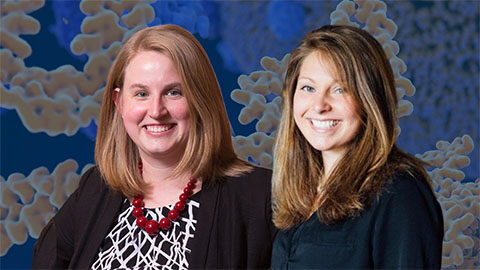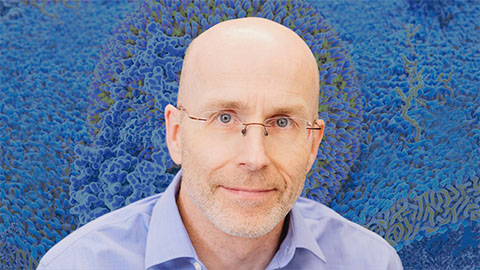RNA Society announces awards
Four members of the American Society for Biochemistry and Molecular Biology have received awards from the RNA Society this year. Charles Bou–Nader, Wendy Gilbert, Nicholas Ingolia and Amanda Hargrove are among those who will be honored at the 2023 RNA Society annual meeting in Singapore in June.

Bou–Nader, a postdoctoral fellow at the National Institute of Diabetes and Digestive and Kidney Diseases at the National Institutes of Health, received the Scaringe Young Scientist Award, which recognizes outstanding research achievements in RNA biology by a junior member. Bou–Nader uses structural biology and biochemistry to study the functions of RNAs and RNPs with Jinwei Zhang, a senior investigator at the NIDDK. The team recently demonstrated how HIV co-opts host tRNAs to control virion biogenesis and published an article on the structural basis of R-loop recognition by the S9.6

Gilbert, an associate professor of molecular biophysics and biochemistry at Yale University School of medicine, was given the Award for Excellence in Inclusive Leadership, which recognizes a scientist who fosters inclusivity and promotes the training and professional development of underrepresented scientists. Her research focuses on regulatory elements in messenger RNA that control gene expression. This award is her second from the RNA Society; in 2017, she received the Early Career Award.

Ingolia, an associate professor of molecular and cell biology at the University of California, Berkeley, received the Mid-Career Research Award, which highlights exceptional RNA researchers during their first 15 years as independent scientists. He studies translational control of gene expression during the cellular stress response using sequencing techniques. The group recently published a global survey of regulatory proteins affecting mRNA stability and translation.

Hargrove, an associate professor of chemistry and biochemistry at Duke University, was awarded the Elisa Izaurralde Award for Innovation in Research, Teaching and Service, which highlights a mid-career researcher who excels in these areas. Her lab researches the basic biology of long noncoding RNAs, their role in diseases such as cancer, and how they can be targeted with small molecules. Hargrove and her team recently published an article on using machine learning and computation to design small molecules with RNA targets.
Enjoy reading ASBMB Today?
Become a member to receive the print edition four times a year and the digital edition monthly.
Learn moreGet the latest from ASBMB Today
Enter your email address, and we’ll send you a weekly email with recent articles, interviews and more.
Latest in People
People highlights or most popular articles

Redefining lipid biology from droplets to ferroptosis
James Olzmann will receive the ASBMB Avanti Award in Lipids at the ASBMB Annual Meeting, March 7–10, just outside of Washington, D.C.

Creating change in biochemistry education
Pamela Mertz will receive the ASBMB William C. Rose Award for Exemplary Contributions to Education at the ASBMB Annual Meeting, March 7-10 in Washington, D.C.

Amacher, Pollock named Henry Dreyfus scholars
They were recognized for their outstanding research scholarship and a deep commitment to undergraduate education and each received $75,000 to fund their research.

Trainee mentorship as immortality
Suzanne Barbour will receive the ASBMB Sustained Leadership Award at the ASBMB Annual Meeting, March 7-10 in Washington, D.C.

Life in four dimensions: When biology outpaces the brain
Nobel laureate Eric Betzig will discuss his research on information transfer in biology from proteins to organisms at the 2026 ASBMB Annual Meeting.

Fasting, fat and the molecular switches that keep us alive
Nutritional biochemist and JLR AE Sander Kersten has spent decades uncovering how the body adapts to fasting. His discoveries on lipid metabolism and gene regulation reveal how our ancient survival mechanisms may hold keys to modern metabolic health.
